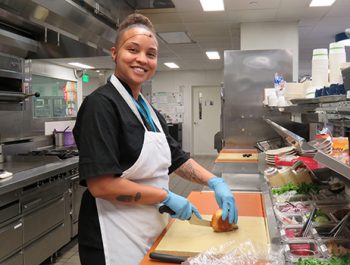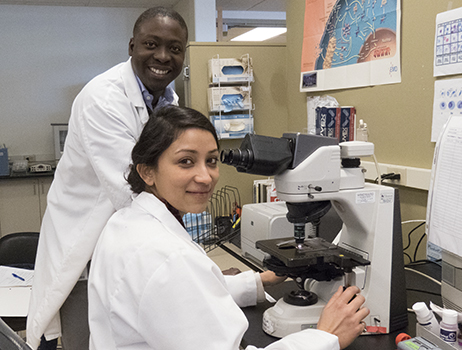What do you think of when someone says, “hospital food” — green Jell-O anyone? You probably don’t think of create-your-own omelets, barbecued chicken salads, street tacos or hand-tossed pizzas. Hospital food has traditionally gotten a bad rap — and for many years it was deserved. When Gina Sadowski, director of Nutrition, Culinary and Retail, started […]
Growing up in Ghana, a sub-Saharan country on the west coast of Africa, Dr. Nana Minkah, a scientist at the Kappe Lab, endured the unenviable “rite of passage” contracting malaria multiple times as a child. While he doesn’t remember the early years when the associated high fever caused hallucinations, he has distinct memories of later […]



